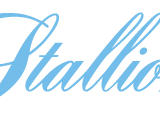TRIPLE Crown Syndications’ red and white colours have been carried to an impressive 16 Group race wins since 2010, a winning statistic by any measure. Chris and Michael Ward are the two brothers at the forefront of this company and have had great success in identifying and acquiring potential stakes winners since 2004. They are both passionate about racing, family and sport.
 Q: I understand you both have a background in finance, which I’m sure is enormous benefit in any kind of business. Can you tell us a bit more about the expertise that you both have to offer your clients?
Q: I understand you both have a background in finance, which I’m sure is enormous benefit in any kind of business. Can you tell us a bit more about the expertise that you both have to offer your clients?
A: Michael; “After attaining a Masters of Applied Finance at university, my first foray into finance was as a fixed interest broker and I then went into funds management for a good decade. I moved to the country after that and set up my own financial planning practice, which I had for around six years. I then decided to move back to Sydney and join Chris at Triple Crown.” “Obviously the racing industry is full of risks and both of us having that financial background has certainly been of enormous benefit for managing these risks for both ourselves and our clients.” Chris; “I studied Sports Science and Human Movement at university for three years, but immediately after that I found myself in a finance position and started to put my energies into a mortgage broking career. I did that for nine years and then saw an opportunity to get into thoroughbred racing, which was where my true passion was. Funnily enough that degree I did in sports science has probably been the one thing that has been the biggest help to me. It’s helped me in identifying the athletes among horses using a lot of correlation with human physiology in the sports science field.”
Q: And you both had an early exposure to thoroughbred racing didn’t you?
A: Michael; “As young kids we had many Saturdays spent being dragged along to the races and also to various stables to go and see the horses we raced. The family was involved in the operation of Eagle Park Stud, which was an agistment and spelling farm here in New South Wales, but that was later on when we were a little older.”
Q: So after you had both been out working in roles far away from racing, you wound up back where it all started so to speak. What is it about the horse racing industry for you that is such a huge attraction?
A: Michael; “I guess for me it’s that thrill of winning that keeps you coming back, it’s a type of adrenaline rush that you can’t get in too many other jobs. I still get that same rush today as I did on that first day in the job, it’s what keeps you young I guess.” Chris; “What I particularly love about it is the challenge, it’s not really an ‘easy’ industry. I love the challenge of identifying the horses to pursue, then trying to secure them and looking for that success on the track. The whole process is exciting all the way through and then we get to share in the joy with so many owners who come on board with us.”
Q: And who trains the horses for Triple Crown?
A: Michael; “In the early days we had a number of different trainers such as Matthew Smith, Chris Waller and John Hawkes with our horses. That really got us started and then we began to branch out from there. In 2014 though, we signed an arrangement with Peter and Paul Snowden to be their exclusive syndicator, so from that point on all the horses have headed into their stables. We do still have a number of older horses who are racing with other trainers.”
Q: You have had enormous success with your syndicated horses, can you tell us some of those success stories?
A: Michael; “Yes we are proud of the results of horses such as Hot Snitzel, Peggy Jean, Charlie Boy, Dothraki, Flying Snitzel, Cavalry Rose, Gold Symphony, Miss Independent and Patronyme. All of these horses were purchased for under $100,000 each and collectively they have earned around $5.5m in prize money to date. “A number of them have also brought substantial prices as broodmare prospects upon retirement, in fact around another $2m in total. We are trying to make it economical for our clients, we want to buy the horses at a reasonable price and then achieve good results for them. That’s what it’s all about.”
Q: When you are purchasing yearlings, how do you go about it? Is there a ‘formula’ that you use? Obviously whatever you are doing is working.
A: Chris; “It’s essentially Michael and me, but now we also include Peter and Paul Snowden as well. But primarily Michael and I will do the rounds at the farms and obviously at the sales grounds leading into the actual auction days. We identify the ones we are keen on and put a budget on what we think they are worth and then stick to that. “Some time out from the sales we sit down and spend an enormous amount of time going through each and every pedigree in the catalogue. We identify the horses we think have the genetic capabilities of making it to the top level. It still leaves quite an extensive list, so once we have done that we move on to the inspections and looking at them ‘physically’. That physical inspection is going to lean one way or the other and is probably the most important aspect of the selection criteria. We narrow it down then to find the athlete within those horses who have the genetic capability and we are also looking to eliminate any potential risks conformation-wise. After that, if the vets are happy as well, we look to secure the horse. We find that process has worked well over the years and has improved our percentages quite significantly. “We don’t purchase anything the two of us don’t agree on. I see that as somewhat of an advantage with two sets of eyes going over everything.”
Q: What are some of the things you will be looking at in a yearling’s pedigree?
A: Chris; “When it comes to proven stallions, we are looking for stallions who have shown they have the capability of throwing top quality horses. We are looking past the ones doing an okay job, the ‘bread and butter’ type stallions because we are always trying to target the stakes level horses. For the unproven sires we are looking for the ones who have shown they have the racetrack performance as well as the type of pedigree we think is going to work in the Australian market. “In the female line, we don’t get too hung up on any one particular aspect of it. I know some people certainly look at maybe how many foals they have had or even if it’s a first foal or a later foal, whether the dam herself was a top class horse or just an average one, we don’t get too caught up on singular things like that. We tend to look more at the bigger profile of the dam’s genetics and the family’s history and capability of throwing a top class horse as well.”
Q: When it comes to the physical inspection is it looking at the overall picture first and then crossing off those with faults that you don’t want or are you looking more critically right at first glance?
A: Chris; “It’s a bit of a combination, we are looking on both sides of the spectrum I guess. Sometimes a horse will walk out and immediately catch your eye as an outstanding athlete and you don’t’ really choose the order you see things then. We have a mental checklist we work through for conformation faults and if a yearling has a bad fault, but still looks a terrific athlete, we are not going to go there because most likely that horse will break down. “Once we have ruled out those faults we are not happy to live with, we then are looking for a well-balanced horse, a very athletic and fluent mover and a really good temperament that you know the trainer will be able to work with. “We also want the horse’s physical type to match the pedigree as well. For example you don’t want a staying type conformation with a sprinters pedigree or vice versa.”
Q: I guess like most racing folk there isn’t a lot of time to indulge in activities other than work and family life, but do you have any interests away from racing?
A: Michael; “Yes, racing is such a consuming industry in that it’s seven days a week but outside of that I obviously focus a lot on family time. My other great interest is rugby union and we were fortunate enough to go to England recently for the World Cup.”
Q: Did you go to any race meetings while you were over there?
A: Michael; “No, we went to the Tattersall’s Horses in Training Sale, but that was as close as we got to racing, and then the outlet on the weekend was the rugby!” Chris; “Really I’m very much the same as Michael. I do find it hard to find time for those extra interests, but likewise I follow the rugby union, actually most sports for that matter! Naturally I try to spend as much time with the family as I can, and have actually just taken up a new hobby with my son, that being dirt bike riding on motorbikes!
Q: With the success that you both have had not only with Triple Crown, but in your previous occupations, I’m sure there is some great advice that you could pass on to someone who is perhaps just starting out in the industry?
A: Michael; “Make sure that you maximise your education as much as possible to complement your practical experiences. Try and keep your eyes and ears open to learn from as many people as possible.” Chris; “My advice would be to be prepared to start at the bottom and work your way through. I think a lot of people in this day and age expect things immediately and that is not realistic, nor is it useful in the long term. People need to start at the bottom and broaden their experience with as many industry leaders as they can. Really be a sponge and soak up as much as you can from the successful people.” n



